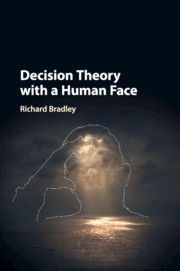Introduction
Published online by Cambridge University Press: 11 October 2017
Summary
Decision problems abound. Consumers have to decide what products to buy, doctors what treatments to prescribe, hiring committees which candidates to appoint, juries whether to convict or acquit a defendant, aid organisations what projects to fund, monetary policy committees what interest rates to set, and legislatures what laws to make. The problem for descriptive decision theory is to explain how such decisions are made. The problem that normative decision theory faces, on the other hand, is what to advise individuals and groups facing choices such as these. How should they evaluate the alternatives before them? What criteria should they employ? What procedures should they follow?
As these examples illustrate, decisions have to be made in a wide variety of contexts and by different kinds of decision makers. A pervasive feature, however, is the uncertainty that decision makers face: uncertainty about the state of the world, about the alternatives available to them, about the possible consequences of making one choice rather than another and, indeed, about how to evaluate these consequences. Dealing with this uncertainty is perhaps the most fundamental challenge we face in making a decision.
In the last 100 years or so an impressive body of work on this issue has emerged. At its core stands Bayesian decision theory, a mathematical and philosophical theory of both rational belief formation and decision making under uncertainty. The influence of Bayesian thinking pervades this book, to which the amount of space devoted to examining and criticising it will attest. Indeed, I regard Bayesian decision theory as essentially the correct theory for certain classes of idealised decision problems. But many real problems fall outside its scope. This is for two main reasons.
Firstly, Bayesian theory assumes that decision makers are ‘unbounded’: rational, logically omniscient and maximally opinionated. Rational in that their attitudes – beliefs, desires and preferences – are consistent both in themselves and with respect to one another; logically omniscient because they believe all logical truths and endorse all the logical consequences of their attitudes; and opinionated because they have determinate beliefs, desires and preferences regarding all relevant prospects.
- Type
- Chapter
- Information
- Decision Theory with a Human Face , pp. 1 - 6Publisher: Cambridge University PressPrint publication year: 2017

